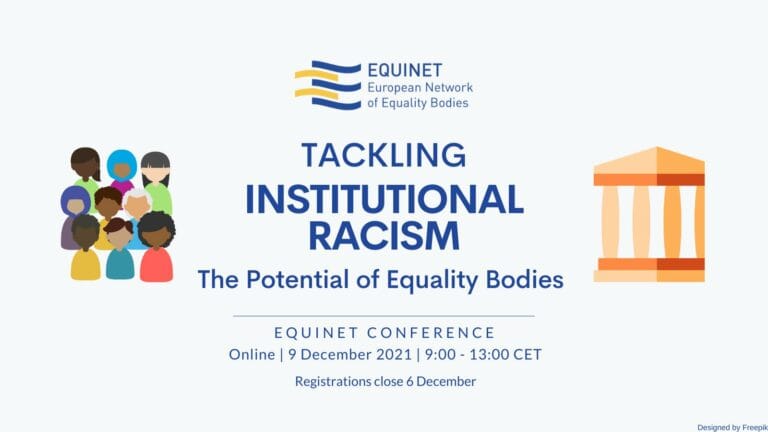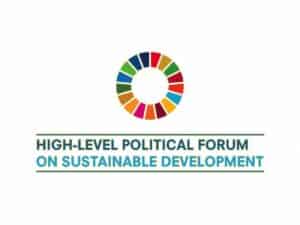On 9th December 2021, the EUD participated in a webinar hosted by Equinet, entitled ‘Tackling Institutional Racism – the Potential of Equality Bodies’. The purpose of the webinar was threefold: to examine institutional racism as a concept and how it is relevant for the mandate and work of equality bodies; to identify and demonstrate how equality bodies are tackling institutional racism and how they could do this more effectively; and finally to identify the barriers facing equality bodies and other stakeholders in terms of addressing institutional racism and the solutions required to overcome these.
Eddie Bruce-Jones, Head of the Law Department at Birkbeck College, University of London, presented an academic perspective on institutional racism. During his oration, Dr Bruce-Jones used the two definitions of racism provided by Ruthie Wilson Gilmore, who wrote, ‘Racism is the state-sanctioned and/or extra-legal production and exploitation of group-differentiated vulnerability to premature death’. Under this definition, racism is a behaviour which the state and its institutions support, whether or not it is written into law (by implicit or explicit legislation), that explicitly target a group, rendering them vulnerable to human rights violations. The state has the last say in determining whether someone’s rights are violated. In conclusion, Dr Bruce-Jones argued that institutional racism is a collective failure of an organisation to provide an appropriate or professional service to people because of their colour, culture or ethnic origin. This definition appears in the UK government’s Macpherson report, which was created in response to the murder of Stephen Lawrence, a black man, by four white men.
During the discussion on the role of equality bodies in tackling institutional racism, Julie Pascoet, Senior Advocacy Officer at the European Network against Racism, stated that it starts with recognition. She argued that in recent years there has been a greater distinction between the racism of institutions and that of historically embedded societal structures. This came to the fore especially after the death of George Floyd in the US in 2020. However, the pandemic has shown to a more significant extent the role of institutions in cementing institutional racism, which led to the creation of the EU Anti-Racism Action Plan, published in 2020.
Michaela Moua, the recently appointed EU Anti-Racism Coordinator, explained the European Commission’s commitments on actively identifying and reducing racism at all levels. She outlined the progress we need to make in moving from racism as being something that happens on an interpersonal or group level, to recognising inter-institutional, structural and systemic levels of racism. The way to do this is by challenging systems, organisations, structures, policies, institutions, practices, laws and attitudes. In conclusion, Mrs Moua said that a review of current legislation was urgently needed in order to make improvements so that institutional racism and discrimination can be combatted effectively.
The conference featured speakers from different parts of Europe, each bringing their unique perspective on institutional racism and providing information on their national or civil society responses to the 2020 Black Lives Matter protests. It is essential to understand the individual experiences of racism and empower the victims. The role of NADs is to tackle racism by centralising these marginalised voices within the deaf community.













